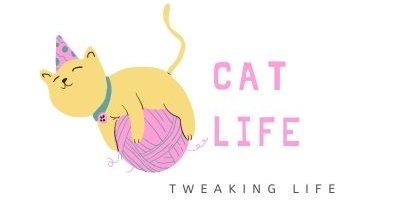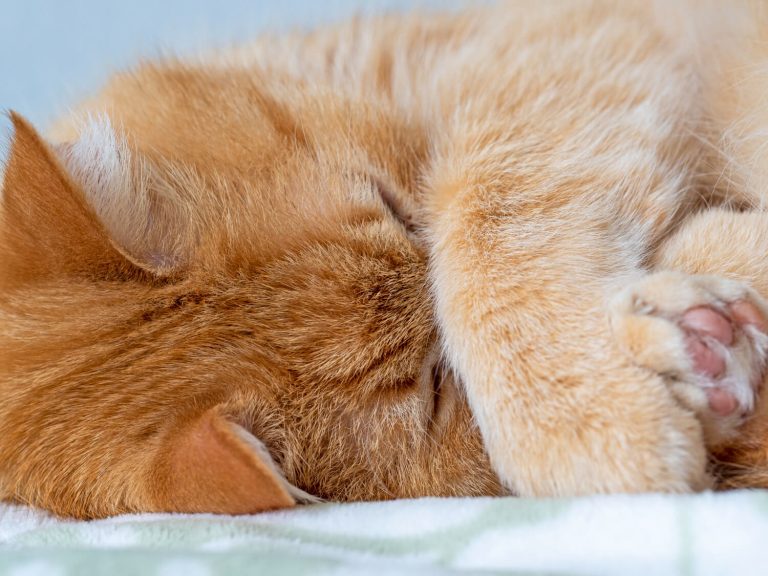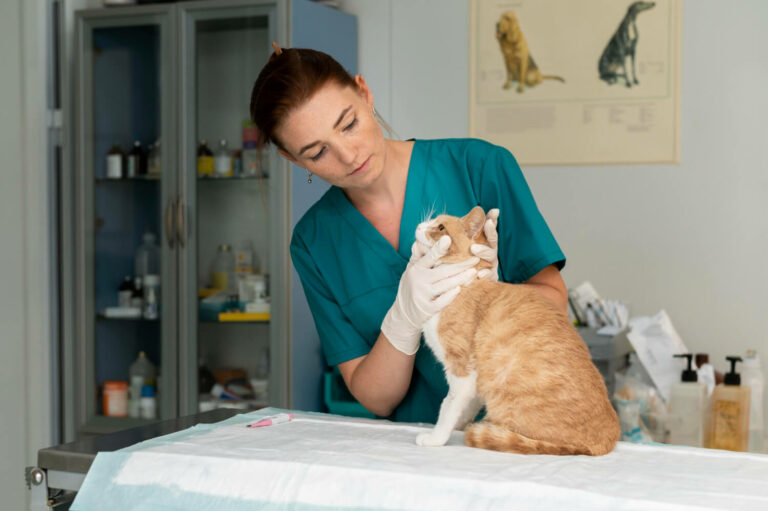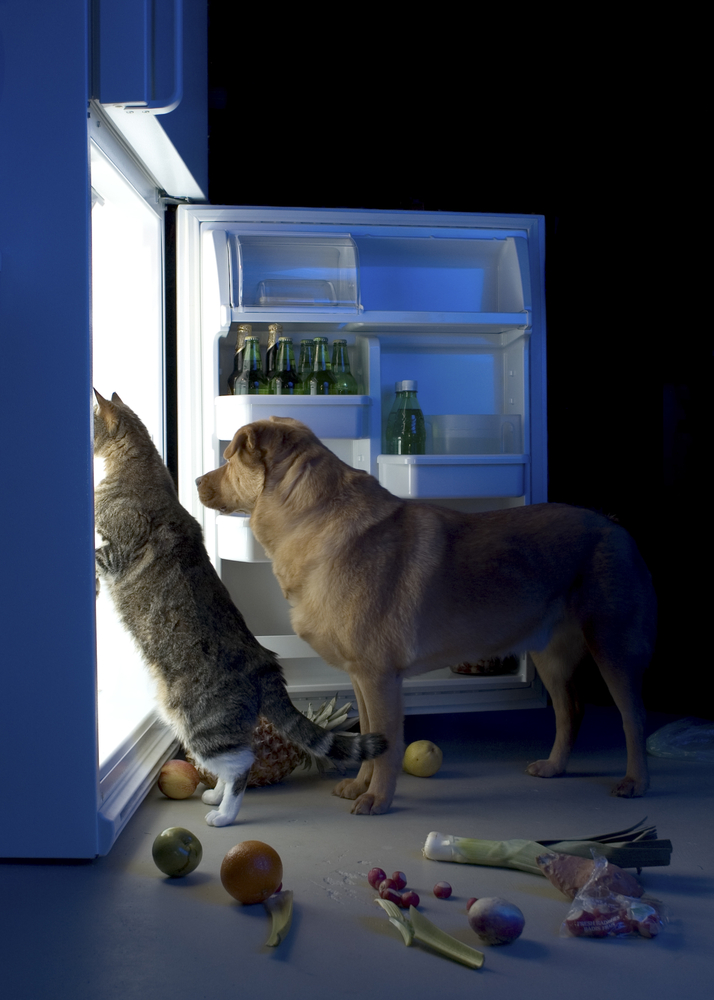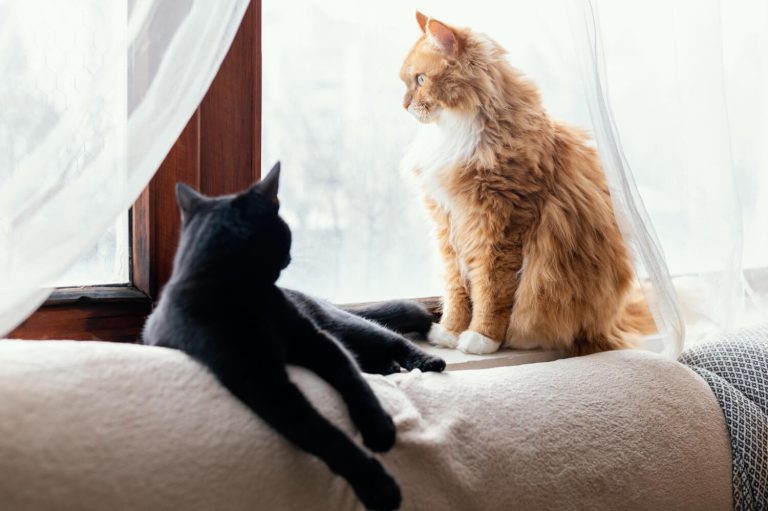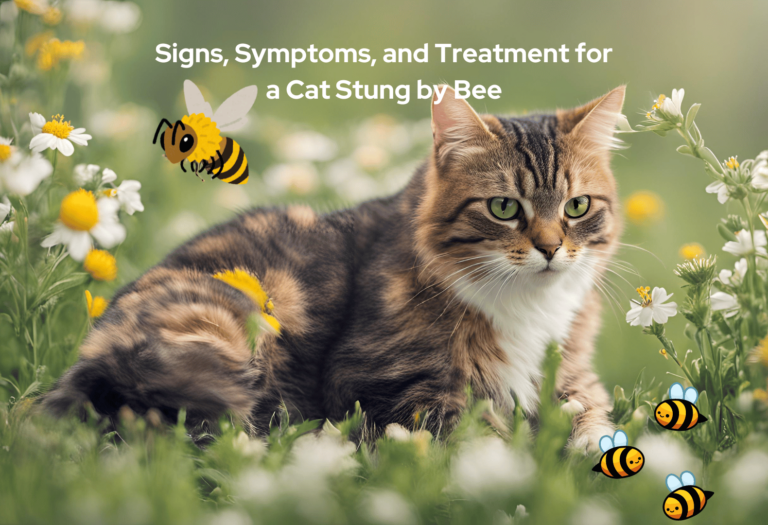Vegetables For Cats: Can Cats Eat Cabbage? Is Cabbage Safe For Cats?
While roaming the internet last week, I came across an interesting discussion. One cat purrent asked other members whether cabbage is safe for cats as she had walked in on her katto eating some.
Well, my cat loves cabbages and I’ve never really thought much about it. But come to think of it, can cats eat cabbage?
I did some research and here is what I found out:
(This blogpost is for cat owners who are curious about feeding their pets vegetables specifically cabbage)

Can cats eat cabbage?
Absolutely! Cats can safely eat cabbages. It’s a healthy vegetable for humans, and it turns out that it can be healthy for cats too. Cabbage is a good source of vitamins C, K, and B6, as well as fiber and manganese. It also contains sulfur compounds that can help to detoxify the liver.
Types of cabbage
Cabbages come in all shapes and color. Here are some of the most common ones:
1. Can cats eat red/purple cabbage?

Yes, cats can eat red cabbages. Purple cabbage is a good source of vitamins A and C, as well as antioxidants. It can help to boost your kitto’s immune system and keep them healthy overall.
The main concern with feeding red cabbage to cats is the potential for gastrointestinal upset. If your cat eats a large amount of raw red cabbage, they may experience vomiting or diarrhea. To avoid this, offer your cat cooked or canned red cabbage instead
2. Can cats eat white/green cabbage?
The answer is a resounding yes! Cats can absolutely eat white cabbage. In fact, this veggie can actually be quite good for them.
The green veggie is great for cats because it is low in calories and fat, and high in fiber. It can help to regulate digestion and keep your furry bestie feeling full.
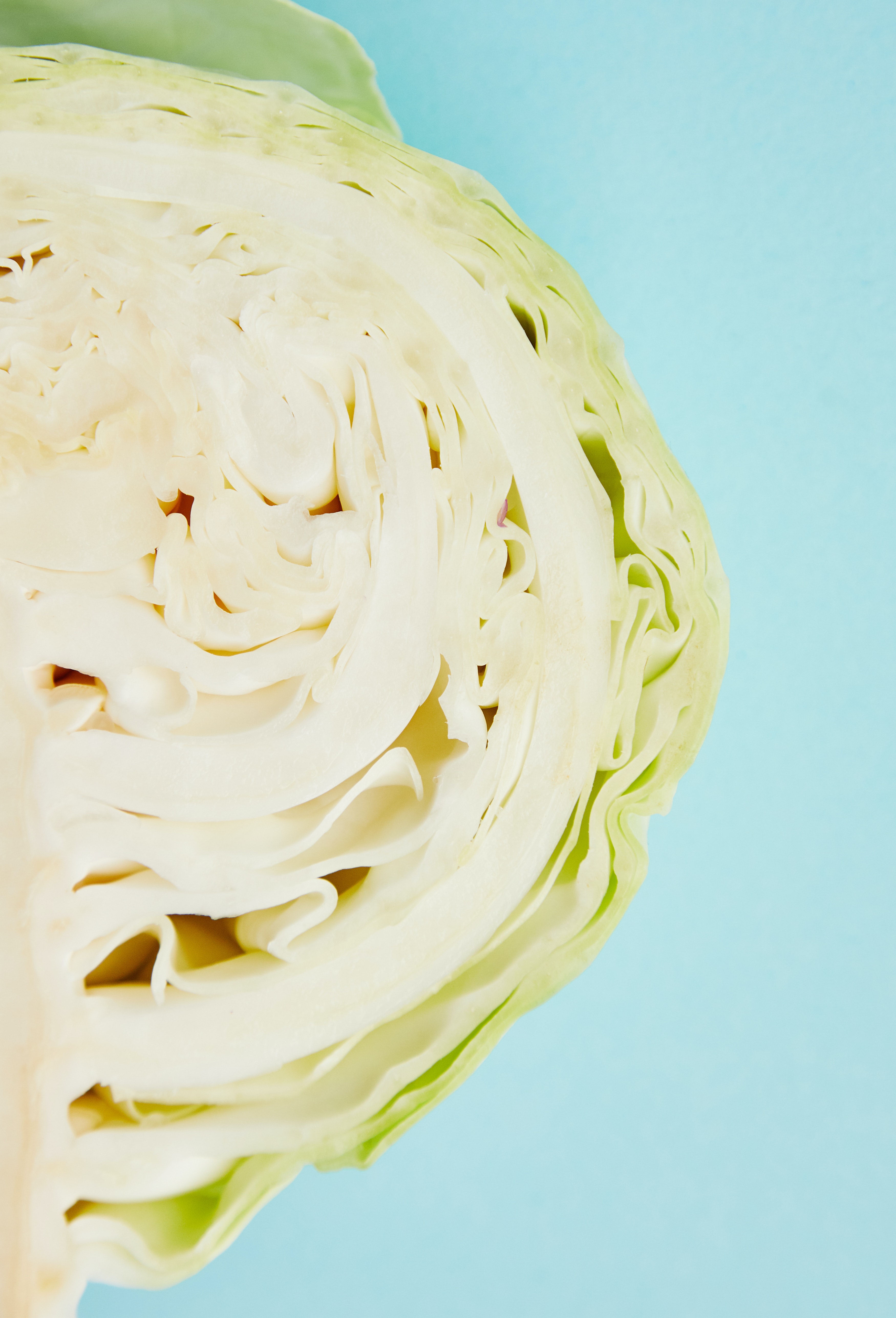
3. Can cats eat napa cabbage?
Yes, cats can eat napa cabbage. The veggie has frilly leaves, a yellow green oblong heads and tick stems.
It’s a good source of vitamins A, C, and K. The veg also contains calcium, which can help to keep your kitto’s bones healthy.
4. Can cats eat savoy cabbage?
Yes, savoy cabbages are safe for cats to eat. It’s characterized by crinkly deep-green leaves. The veggie is low in calories and fat, but high in fiber. It can help with digestion and keeping your dog feeling full.

Which of these cabbage varieties is ideal for your furry, little friend?
Generally, red or purple cabbage is the most recommended, thanks to their rich abundance of the compound anthocyanin.
Anthocyanin is a flavonoid compound that gives cabbage its characteristic purple or red color. anthocyanins are antioxidants and possess anti-inflammatory properties, making them ideal for cats with allergies or sensitivities to other vegetables.
Can cats eat lettuce?
Lettuce is generally safe for cats to eat and is a good source of vitamins A and C, as well as fiber. However, some may experience digestive upset if they eat too much.
What are the benefits of cabbage for cats?
1. A good source of fiber for cats
Cabbage is a great source of dietary fiber for cats that helps relieve indigestion and improve their bowel movements. The vegetable has both insoluble and soluble fiber, which work together to provide health benefits for your kitto.
Insoluble fiber isn’t broken down in your cat’s intestines, bulking up the stools and enhancing regular bowel movements.
On the other hand, soluble fiber increases the number and activity of beneficial bacteria in the gut, like Lactobacilli and Bifidobacterial.
2. A low-calorie food that helps with weight management
Cabbage is a great low-calorie food for cats. Not only is it low in calories, but it is also high in fiber which can help cats feel full and satisfied after eating. This can be helpful for cats who are trying to lose weight or maintain a healthy weight.
3. Contains vitamins and minerals that are essential for cats
Cabbage is a good source of vitamins and minerals, including vitamin C, potassium, and magnesium. These nutrients are essential for cats, and they can help to boost the immune system, improve circulation, and support overall health.
4. Can help improve digestion and relieve constipation
Cabbage is a high-fiber food that can help relieve indigestion and improve your feline’s bowel movements.
Fiber is a type of carbohydrate that is not absorbed in your GI tract and is passed through to the large intestine where it helps to remove waste. Fiber also helps to regulate your blood sugar levels and keep your appetite under control.
5. Promotes a Healthy Heart and Prevents Blood Pressure Spikes
Cabbage is a cruciferous vegetable that is packed with nutrients that are beneficial for cats. One of the key nutrients in cabbage is potassium, which helps to keep the heart healthy and prevent blood pressure spikes
Cabbage also contains fiber, which can help to regulate digestion, and antioxidants, which can help to protect cells from damage.
| Nutrient | % of daily calories needs | Benefits |
| Fiber | 5.65% | – Helps relieve indigestion and improve your feline’s bowel movements. – Reduce bad LDL by preventing it from getting absorbed into the cat’s bloodstream |
| Calcium | 0.12% | – Helps with bone formation. |
| Vitamin C | 0.1% | – Improves skin flexibility and functions of muscles, bones, and blood vessels in cats. |
| Proteins | 3.54% | -Help in muscle building. |
| Potassium | 0.6% | – Lowers blood pressure by neutralizing effects of salt and helping cat to excrete excess sodium through urine |
(Table is based on calories of an average neutered/spayed adult house cat and data from uhhospitals)
Are there any risks associated with feeding cabbage to cats?
1. Cabbage is a goitrogen
Cabbage is a goitrogen, meaning that it can cause goiters in cats. Goiters are enlarged lumps of thyroid tissue that can form in the neck and windpipe of cats.
These lumps can block the flow of air and fluids, leading to respiratory problems and even death in some cases.
2. Can cause gastrointestinal upset

Some cats may experience digestive upset after eating cabbage. This can include vomiting, diarrhea, and gas. If your cat seems uncomfortable after eating cabbage, discontinue feeding it to them and consult your veterinarian.
3. Can contain toxins
Cabbage, like many other vegetables, may contain harmful toxins to cats such as pesticide residue. It is important to make sure you thoroughly wash the vegetable before giving it to your cat.
4. Cabbage can interfere with thyroid function
Cabbage is a goitrogenic food, which means that it can interfere with thyroid function. In cats, this can lead to an enlarged thyroid gland (goiter), and potentially even hypothyroidism. If your cat has a pre-existing thyroid condition, it’s best to avoid feeding them cabbage.
How much cabbage is safe for cats?
Cabbage can be a beneficial food for cats if given in moderation. Serve 1 to 2 teaspoons of boiled cabbage over a week. Cats should not consume too much cabbage at one time as it can cause gastrointestinal problems.
If your cat does eat too much cabbage, watch for signs of vomiting or diarrhea and contact your veterinarian if they occur.
How can I incorporate cabbage into my cat’s diet?
It is best to start by introducing a limited amount of cabbage to your cat and see if they have any adverse health effects. If their digestive system can handle it, you can then feed them cabbage as a treat or in small amounts once a week.
However, if your cat gets sick after eating cabbage, stop serving it to them immediately.
How do you prepare cabbage for cats to eat?
1. Choose the right type of cabbage for your cat.
There are many different types of cabbage, but not all of them are safe for cats to eat. Make sure you choose a type that is safe for your cat to consume.
2. Wash the cabbage thoroughly.
This is important to remove any harmful bacteria or toxins that may be present on the surface of the vegetable.
3. Chop the cabbage into small pieces. This will make it easier for your cat to eat and digest.
4. Serve the cabbage to your cat in a small amount at first and observe how they react to it. If they seem to enjoy it and have no adverse reaction, you can increase the amount you feed them next time
Can cats eat cabbage raw?

Yes, cats can eat cabbage raw as long as it is served in moderation. However, there are a few things to consider before feeding your cat raw cabbage.
For one, cabbage contains goitrogens, which can interfere with the thyroid gland’s ability to produce hormones. So, if your cat has thyroid problems, you should avoid feeding them cabbage.
Additionally, raw cabbage can cause gas and bloating in some cats. If you do decide to feed your cat raw cabbage, start with a small amount to see how they react before giving them more.
Can cats eat cabbage that is cooked?
Yes, you can give your cat cooked cabbage. To make the cabbage more digestible and safer for cats, you should boil, steam, or roast it before serving. There’s no need to add oil or spices; the boiling will perfectly do the job.
Additionally, you should mix the cabbage into your cat’s regular food rather than serving it on its own. This way, your cat will get all of the nutrients that cabbage has to offer without any of the potential dangers.
Other vegetables safe for cats

Cabbages aren’t the only safe vegetables for cats. Here is a collection of 21 vegetables your cat can eat. Some of them include:
Broccoli
Cauliflower
Squash
Kale and spinach
Conclusion on cats eating cabbage
Overall, cabbage is a healthy vegetable for most cats. It’s packed with vitamins and minerals, and is low in calories. Just be sure to introduce it slowly into your cat’s diet to avoid any potential digestive issues.
Can Cats Eat Cabbage Can Cats Eat Cabbage Can Cats Eat Cabbage Can Cats Eat Cabbage Can Cats Eat Cabbage Can Cats Eat Cabbage Can Cats Eat Cabbage Can Cats Eat Cabbage Can Cats Eat Cabbage Can Cats Eat Cabbage
